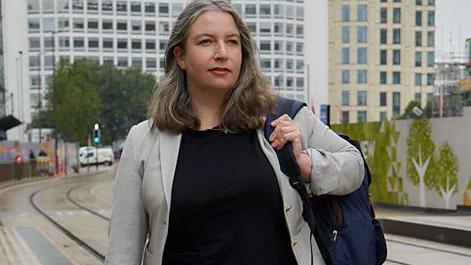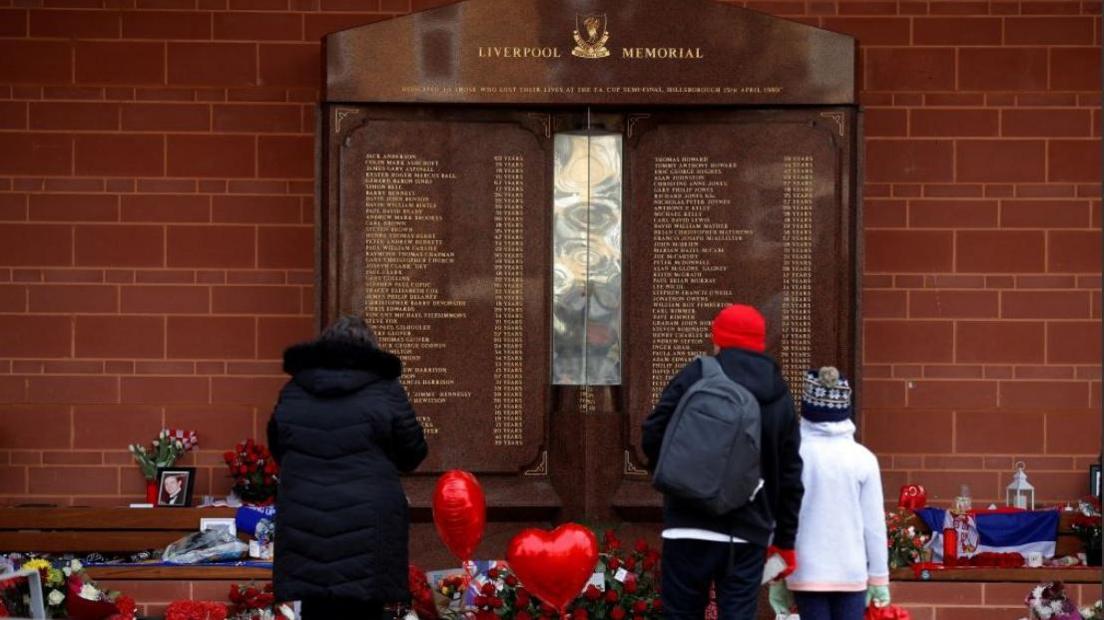'Hillsborough inspired my disaster response career'

Prof Easthope had classmates who were at Hillsbrough
- Published
A global expert in emergency planning and disaster recovery has told how her career was motivated by how she was "very affected" by the Hillsborough tragedy.
Liverpool-born professor, Lucy Easthope, said she had been "activated at an early age" after classmates and friends had been at the 1989 football match.
Ninety-seven Liverpool fans died as a result of the crush at Sheffield's Hillsborough ground.
Prof Easthope said she became "very interested in what we do to communities and people after a disaster and the harms we visit on them".
She told BBC Radio 4's Word Of Mouth programme she went to see her careers teacher with the hope of studying law, to go into disaster work.
"I embarked on what now seems quite a strange path really," she said.

The academic said truth was vital in the aftermath of a disaster
On her graduation she followed up a business card from someone who worked as a disaster response contractor and ended up working in the aftermath of the 9/11 terror attack on the World Trade Centre towers in New York.
Since then she has been involved in most UK disasters, from the London bombing in 2005 to the Grenfell Fire tragedy in London in 2017.
The Professor in Practice of Risk and Hazard at the University of Durham said of all the responses to disasters: "Truth is always important."
Referring to the notorious The Sun story after Hillsborough which claimed Liverpool fans looted those who had been killed she said: "That phrase truth means so much because The Sun headline of 19 April 1989 told so many lies.".
The Sun's front headline The Truth blamed the fans for the tragedy sparking a boycott of the paper on Merseyside.
The paper has twice apologised for the story since then.
Inquests in 2016 concluded the fans who died were unlawfully killed and police errors had added to the dangerous situation.
After a 27-year campaign by victims' families, the behaviour of Liverpool fans was exonerated.
The jury found they did not contribute to the danger unfolding at the turnstiles.
- Published15 April 2024
- Published27 April 2016
- Published26 April 2016
Listen to the best of BBC Radio Merseyside on Sounds and follow BBC Merseyside on Facebook, external, X, external, and Instagram, external. You can also send story ideas to northwest.newsonline@bbc.co.uk, external